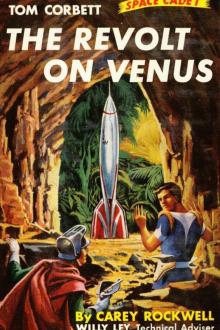Hypatia — or New Foes with an Old Face by Charles Kingsley (e book reader TXT) 📗

- Author: Charles Kingsley
Book online «Hypatia — or New Foes with an Old Face by Charles Kingsley (e book reader TXT) 📗». Author Charles Kingsley
At last the heavy tramp of footsteps was heard coming down the street, and every window was crowded in an instant with eager heads; while Peter rushed downstairs to heat the large coppers, having some experience in the defensive virtues of boiling water. The bright moon glittered on a long line of helmets and cuirasses. Thank Heaven! it was the soldiery.
‘Are the Jews coming?’ ‘Is the city quiet?’ ‘Why did not you prevent this villainy?’ ‘A thousand citizens murdered while you have been snoring!’—and a volley of similar ejaculations, greeted the soldiers as they passed, and were answered by a cool—‘To your perches, and sleep, you noisy chickens, or we’ll set the coop on fire about your ears.’
A yell of defiance answered this polite speech, and the soldiery, who knew perfectly well that the unarmed ecclesiastics within were not to be trifled with, and had no ambition to die by coping-stones and hot water, went quietly on their way.
All danger was now past; and the cackling rose jubilant, louder than ever, and might have continued till daylight, had not a window in the courtyard been suddenly thrown open, and the awful voice of Cyril commanded silence.
‘Every man sleep where he can. I shall want you at daybreak. The superiors of the parabolani are to come up to me with the two prisoners, and the men who took them.’
In a few minutes Philammon found himself, with some twenty others, in the great man’s presence: he was sitting at his desk, writing, quietly, small notes on slips of paper.
‘Here is the youth who helped me to pursue the murderer, and having outrun me, was attacked by the prisoners,’ said Peter. ‘My hands are clean from blood, I thank the Lord!’
‘Three set on me with daggers,’ said Philammon, apologetically, ‘and I was forced to take this one’s dagger away, and beat off the two others with it.’
Cyril smiled, and shook his head.
‘Thou art a brave boy; but hast thou not read, “If a man smite thee on one cheek, turn to him the other”?’
‘I could not run away, as Master Peter and the rest did.’
‘So you ran away, eh? my worthy friend?’
‘Is it not written,’ asked Peter, in his blandest tone, “If they persecute you in one city, flee unto another”?’
Cyril smiled again. ‘And why could not you run away, boy?’
Philammon blushed scarlet, but he dared not lie. ‘There was a—a poor black woman, wounded and trodden down, and I dare not leave her, for she told me she was a Christian.’
‘Right, my son, right. I shall remember this. What was her name?’
‘I did not hear it.—Stay, I think she said Judith.’
‘Ah! the wife of the porter who stands at the lecture-room door, which God confound! A devout woman, full of good works, and sorely ill-treated by her heathen husband. Peter, thou shalt go to her to-morrow with the physician, and see if she is in need of anything. Boy, thou hast done well. Cyril never forgets. Now bring up those Jews. Their Rabbis were with me two hours ago promising peace: and this is the way they have kept their promise. So be it. The wicked is snared in his own wickedness.’
The Jews were brought in, but kept a stubborn silence.
‘Your holiness perceives,’ said some one, ‘that they have each of them rings of green palm-bark on their right hand.’
‘A very dangerous sign! An evident conspiracy!’ commented Peter.
‘Ah! What does that mean, you rascals? Answer me, as you value your lives.’
‘You have no business with us: we are Jews, and none of your people,’ said one sulkily. ‘None of my people? You have murdered my people! None of my people? Every soul in Alexandria is mine, if the kingdom of God means anything; and you shall find it out. I shall not argue with you, my good friends, anymore than I did with your Rabbis. Take these fellows away, Peter, and lock them up in the fuel-cellar, and see that they are guarded. If any man lets them go, his life shall be for the life of them.’
And the two worthies were led out.
‘Now, my brothers, here are your orders. You will divide these notes among yourselves, and distribute them to trusty and godly Catholics in your districts. Wait one hour, till the city be quiet; and then start, and raise the church. I must have thirty thousand men by sunrise.’
‘What for, your holiness?’ asked a dozen voices.
‘Read your notes. Whosoever will fight to-morrow under the banner of the Lord, shall have free plunder of the Jews’ quarter, outrage and murder only forbidden. As I have said it, God do so to me, and more also, if there be a Jew left in Alexandria by to-morrow at noon. Go.’
And the staff of orderlies filed out, thanking Heaven that they had a leader so prompt and valiant, and spent the next hour over the hall fire, eating millet cakes, drinking bad beer, likening Cyril to Barak, Gideon, Samson, Jephtha, Judas Maccabeus, and all the worthies of the Old Testament, and then started on their pacific errand.
Philammon was about to follow them, when Cyril stopped him.
‘Stay, my son; you are young and rash, and do not know the city. Lie down here and sleep in the anteroom. Three hours hence the sun rises, and we go forth against the enemies of the Lord.’
Philammon threw himself on the floor in a corner, and slumbered like a child, till he was awakened in the gray dawn by one of the parabolani.
‘Up, boy! and see what we can do. Cyril goes down greater than Barak the son of Abinoam, not with ten, but with thirty thousand men at his feet!’
‘Ay, my brothers!’ said Cyril, as he passed proudly out in full pontificals, with a gorgeous retinue of priests and deacons—‘the Catholic Church has her organisation, her unity, her common cause, her watchwords, such as the tyrants of the earth, in their weakness and their divisions, may envy and tremble at, but cannot imitate. Could Orestes raise, in three hours, thirty thousand men, who would die for him?’
‘As we will for you!’ shouted many voices.
‘Say for the kingdom of God.’ And he passed out.
And so ended Philammon’s first day in Alexandria.
CHAPTER VI: THE NEW DIOGENES
About five o’clock the next morning, Raphael Aben-Ezra was lying in bed, alternately yawning over a manuscript of Philo Judaeus, pulling the ears of his huge British mastiff, watching the sparkle of the fountain in





Comments (0)